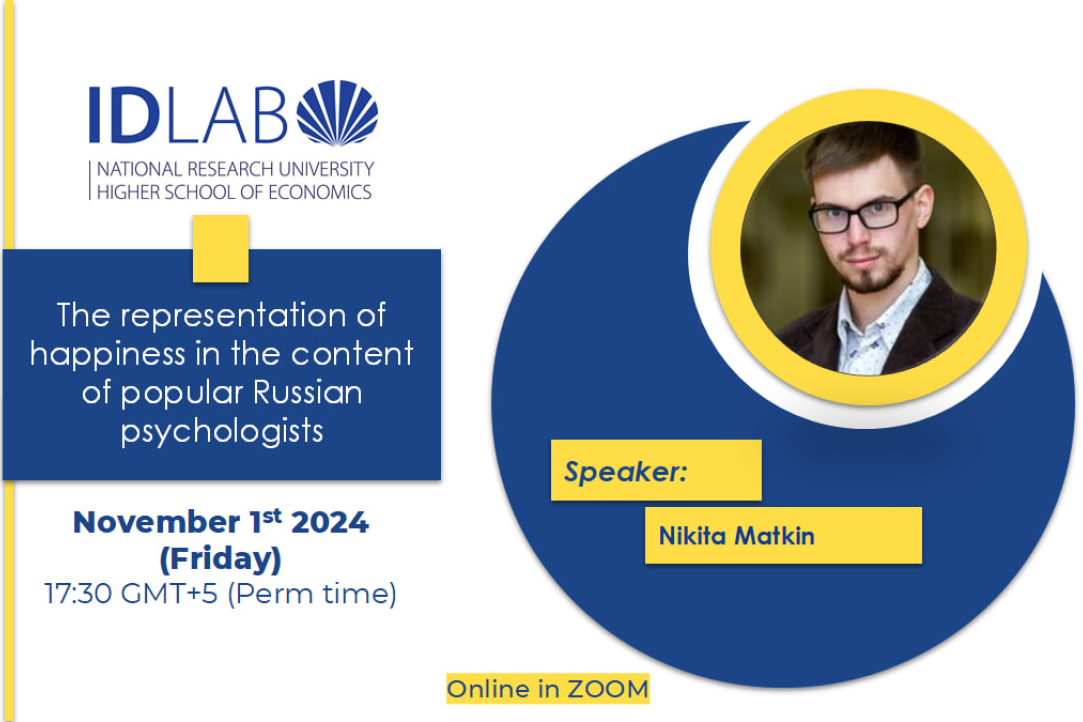IDLab Seminar: How Do Popular Psychologists in Russia Present the Concept of Happiness?
On November 1, an online research seminar organized by the international laboratory IDLab took place, during which research assistant Nikita Matkin presented a study on the popularity and content of videos on the topic of "happiness" among Russian psychologists. The seminar gathered students and scholars not only from Perm but also from Moscow, attracting the interest of a wide audience.

Every day, more videos appear about what it means to be happy, and these videos often become a source of income for bloggers who lack psychological education. This raises questions about the reliability and depth of the presented material, as psychology requires a serious approach and knowledge of nuances, while alternative interpretations can lead to negative consequences.
With the development of "therapeutic culture," happiness is becoming an increasingly important topic, especially in the context of a neoliberal society where personal well-being occupies a central place. Some countries, such as the UAE and Bhutan, prioritize happiness as a state goal. On the internet and social media, happiness is turning into a commodity: the necessity to appear happy becomes part of life, sometimes leading to manipulation and pressure, while the expression of negative emotions can lead to condemnation.
Matkin's research revealed that the concept of happiness discussed by popular Russian psychologists is often associated with material aspects, such as property and financial well-being, as well as interpersonal relationships and spiritual growth. However, less attention is paid to the psychological aspects themselves, which are overshadowed by religious and spiritual interpretations of happiness. The study, conducted using thematic modeling, identified 15 key themes related to happiness, including self-improvement, material well-being, and relationships with others.
Psychological well-being, as the analysis results showed, is increasingly perceived as an achievement in personal growth and improvement of material conditions rather than as a separate topic deserving of a deep scientific approach. Such simplification of complex concepts raises concerns: the commercialization of happiness may lead to issues requiring public attention being viewed solely through the lens of individual well-being.
The author of the study notes that the understanding of data limitations and the need to expand the sample emerged during active discussions with the audience. Seminar participants suggested deepening the analysis by adding feedback from viewers and exploring other platforms such as Telegram and VK. This will help provide a more comprehensive understanding of how the concept of happiness is represented in the digital space and what influence popular interpretations have on perceptions of this topic.
